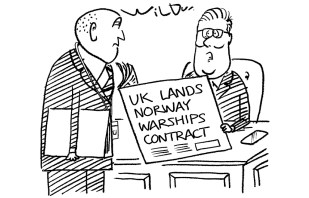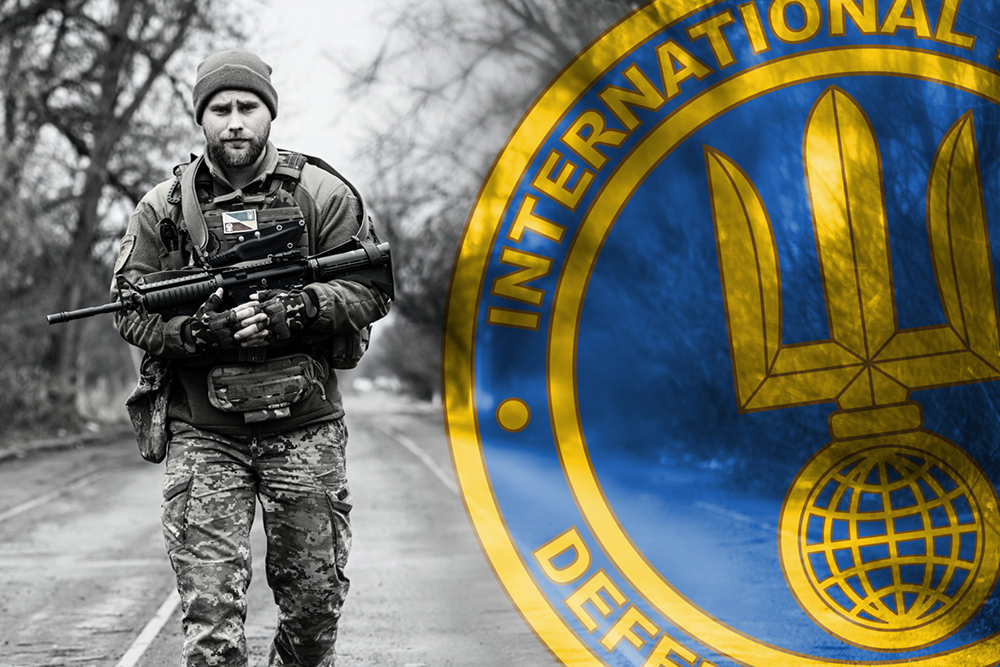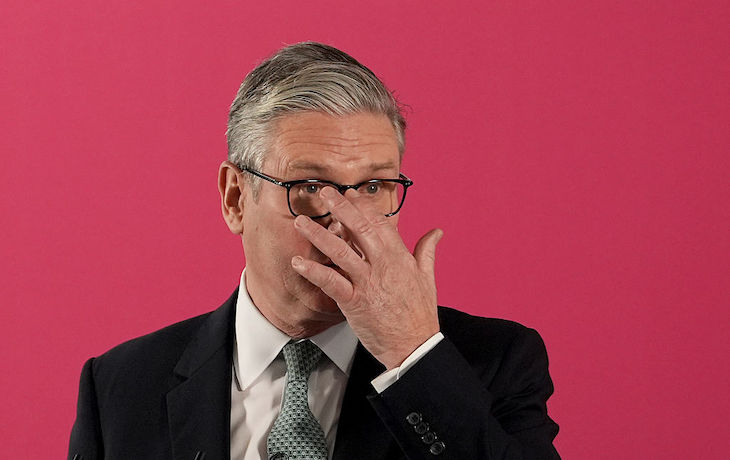
It seems that people would rather fight for a death cult than a democracy. At most, 15,000 foreigners have fought in Ukraine over the past three years. By contrast, an estimated 35,000 foreign fighters joined Islamic State, despite the risk of prosecution when they returned home.
Why have so few westerners joined up, given that Ukraine’s Polish border is just a £50 Ryanair flight away? The answer is that despite having a master showman like Volodymyr Zelensky as its recruiting sergeant, Ukraine’s International Legion was a disorganised shambles from the start. Zelensky announced the Legion’s creation just three days into the invasion. ‘This is the beginning of a war against Europe,’ he said, ‘against democracy, against basic human rights.’ But behind the scenes, his generals had no way of putting his lofty language into action. Zelensky hadn’t even told them of his plan before the announcement.
Only a few Ukrainian staff were on hand to process the thousands of volunteers who turned up in the first few weeks of the war and these staff didn’t have the capacity to vet them properly. For every battle-hardened ex-Para and Green Beret, there were Walter Mittys, war tourists and misfits. Many of these Call of Duty warriors came unstuck on the battlefield, earning the Legion a bad reputation among Ukrainian commanders. After all, anyone who can’t understand statements like ‘Russian troops to your right’ or ‘Watch that landmine’ can be a liability.
As a result, even the more competent volunteers often found the Legion to be far from the George Orwell experience they had hoped for. Some complained of being used as cannon fodder by the Ukrainians; one told me they were regarded as ‘free meat’. Others languished in barracks for months, struggling to get near a front line at all.
Three months into the invasion, a report was sent to President Zelensky’s office warning that many legionnaires felt that the President had sold them ‘pipe dreams’. In the end, some volunteers bypassed the Legion’s structures, forming their own small groups to fight on the front lines almost independently. Given all the horror stories I have heard from the early days, it says much about their commitment that they did not quit altogether.
For every battle-hardened ex-Para and Green Beret, there were Walter Mittys, war tourists and misfits
Things have improved since then, with better vetting and training. The Legion’s contribution to Ukrainian morale has been significant, showing civilians that, for some westerners at least, the slogan ‘We stand with Ukraine’ meant something. But many volunteers argue that had it been better managed from the start, the Legion could have done much more. Some believe that it could have been 100,000 strong by now. Ukraine desperately needs the troops; Russia is currently recruiting at twice the rate of Kyiv.
This is exactly the kind of war that many soldiers really want to fight – a peer conflict that tests their skills to the limit. As Andrew Webber, an ex-US Army paratrooper killed in Ukraine in 2023, once put it: ‘It surprises me that there aren’t, like, fuck-tons of US military West Point people here. It’s a free war with a fairly clear bad guy.’
I wonder whether Ukraine’s western backers missed a chance. What hobbled the Legion from the beginning was not a lack of willing volunteers or weapons, but a lack of proper staffing: NCOs who could have weeded out the bad apples; competent commanders; translators to help with the language barriers. This is precisely the kind of thing that Kyiv’s allies could have quietly helped with, even from a neighbouring country such as Poland. Nor would this have required governments’ direct involvement. Private military contractors like DynCorp and Blackwater trained both the Iraqi and Afghan security forces, often starting with far less promising material.

Sure, Vladimir Putin would have claimed that the Legion was a Nato-sponsored mercenary force. But he claimed that anyway, and given that the current Legion has volunteers from more than 50 nations, it would never have rung true. Besides, with the West already arming Ukraine and training its soldiers, a mentoring force for the Legion would hardly have ratcheted things up.
So why did this not happen? Part of it is diplomatic squeamishness. For all their warm words about ‘standing with Ukraine’, most of Kyiv’s western allies did not want their own people fighting there. Britain officially warns citizens that they could face prosecution for fighting in Ukraine, just as it did with volunteers for the International Brigade in the 1930s. When Liz Truss, the then foreign secretary, said early on in the war that she ‘absolutely’ supported anyone who wanted to join, she was immediately slapped down by Downing Street.
Yet British generals are queuing up to warn that a conflict with Russia is likely in the coming years. Legionnaires surely have valuable knowledge to pass on. Within their ranks are thousands of combatants who have direct experience of fighting the Russian military, and who know what next–generation warfare is like, with its hypersonic missiles and constant threat from drones. When I ask former fighters if they have been called in by the Ministry of Defence for a chat, the answer is always no. A few have been invited to give talks by pals from their old regiments back in Britain, but it has always been informal. The apparatchiks in Whitehall, I am told, don’t really like the idea of taking lessons from outsiders – especially when HMG did not approve of them going in the first place.
Many are not elite ex-Paras or Sandhurst officers, but bog-standard ex-squaddies. A few went to Ukraine having never served in the military at all. It is hard to imagine roomfuls of top brass wanting to take lessons from them. Yet were Britain ever to face a mass mobilisation again, it is ordinary people who would have to step into the breach, just as they have in Ukraine. Indeed, when Britain formed its Home Guard to fend off the threat of Nazi invasion, one of the more promising commanders was a chap in the St John’s Wood Company, who unlike his Dad’s Army peers actually had combat experience. He was Sergeant Eric Blair, a.k.a. George Orwell.







Comments